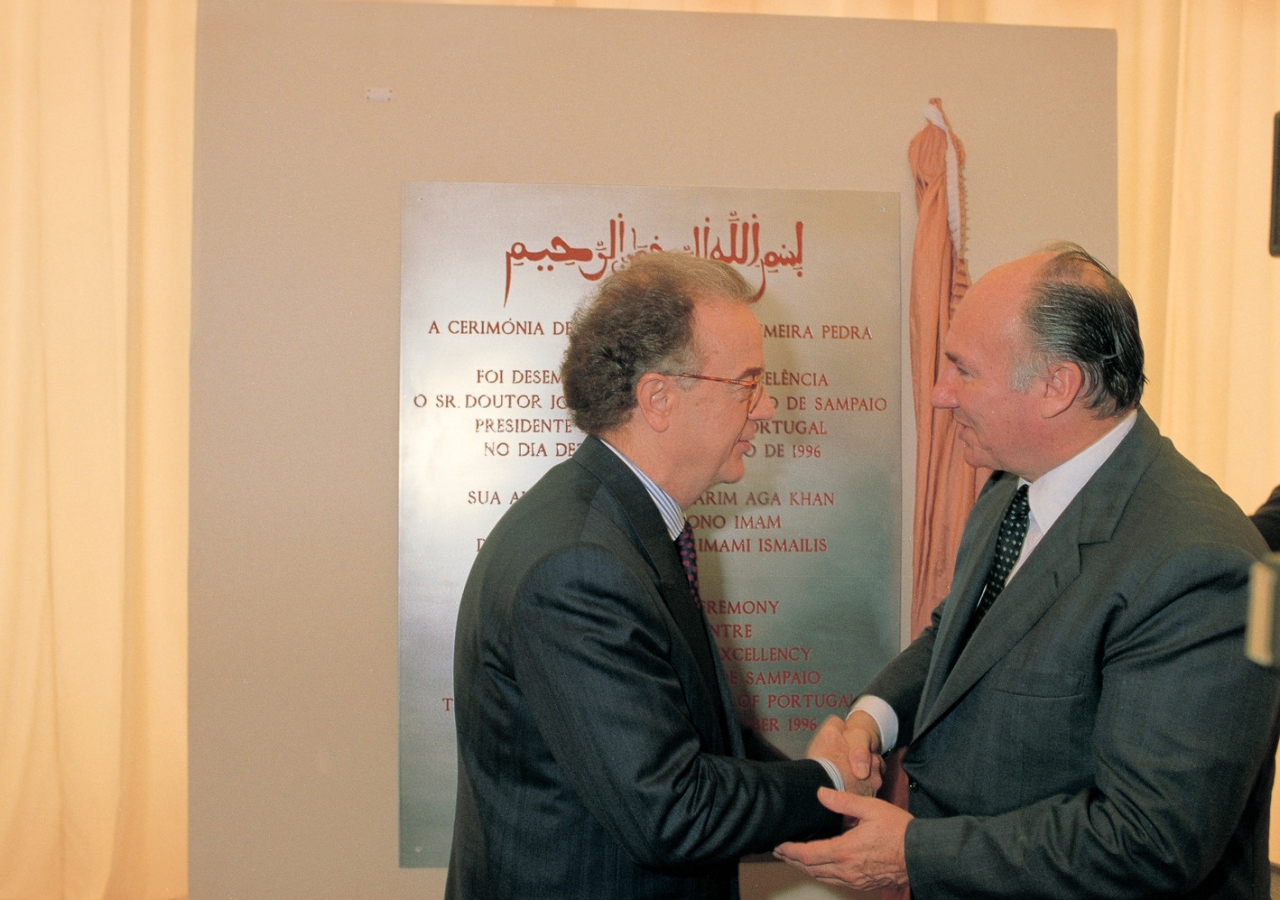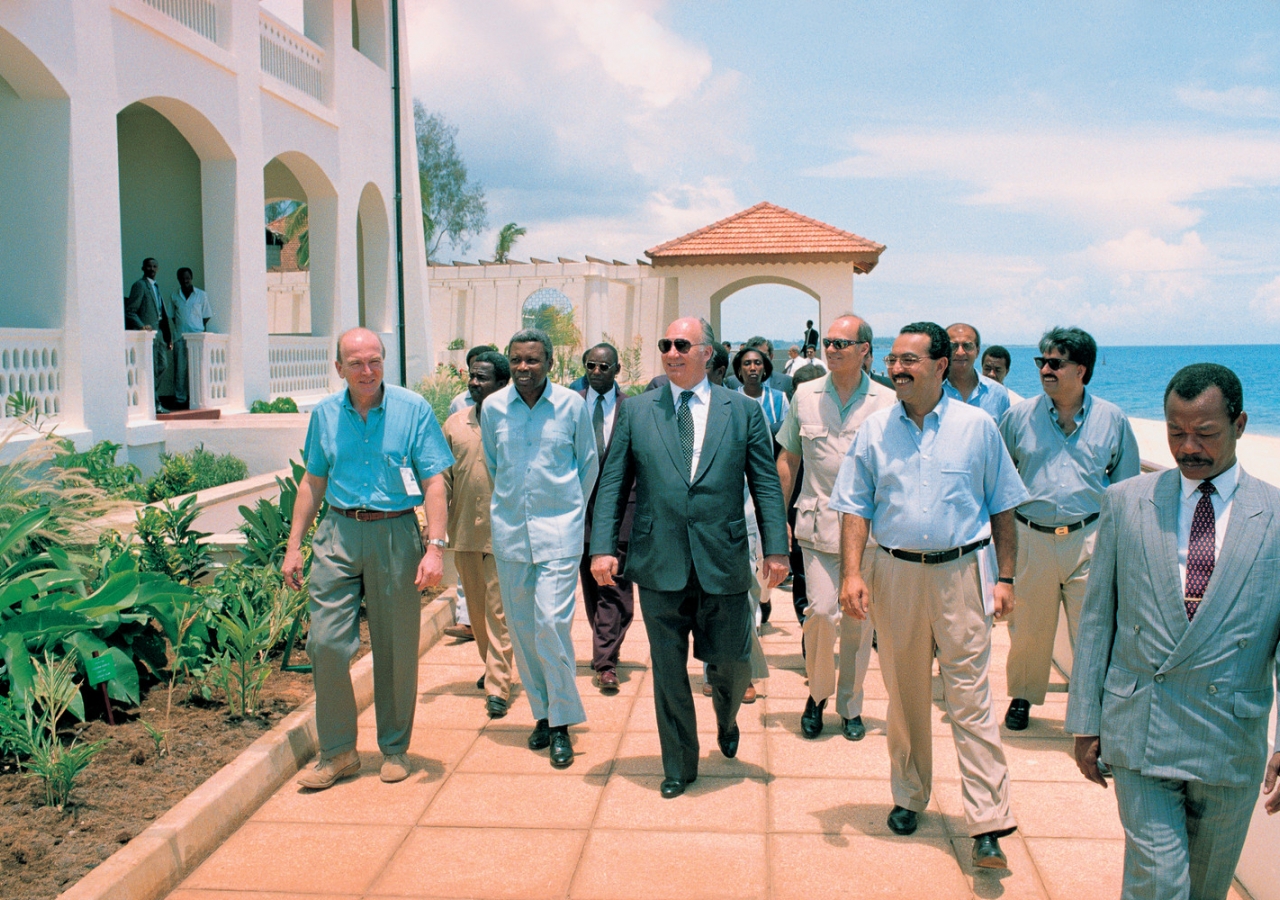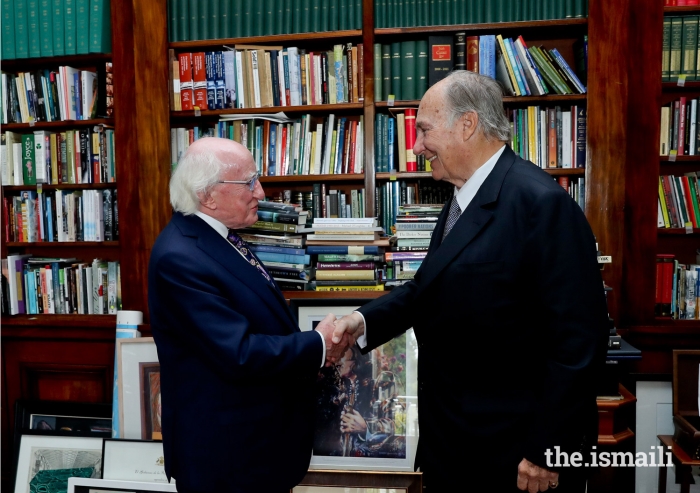This decade saw a rise in the popularity of personal computing, and the emergence of the World Wide Web as a form of communication, which accelerated the process of globalisation. From 1987 onwards, as in previous years, Mawlana Hazar Imam continued his tireless efforts to advance the spiritual and material progress of the Jamat. The Imam’s mandate to improve quality of life is rooted in the ethic of Islam, wherein all Muslims are called upon to care for those who are most vulnerable in society.
Much of the Imam’s focus turned to Central Asia, which was undergoing significant changes. Following the collapse of the Soviet Union in 1991, national entities like Tajikistan, Kyrgyzstan, Kazakhstan, and Uzbekistan emerged as independent nation states. The opening up of Central Asia enabled the Imamat to come into contact with the Jamats of Central Asia for the first time in decades. When civil war broke out in Tajikistan, the Aga Khan Development Network’s institutions were there to provide vital aid. Meanwhile, Afghanistan was devastated by an eight-year conflict with the Soviets, followed by the Taliban seizing power in the country. The Imamat established new institutions and agreements to provide humanitarian assistance in these countries, and to help resettle refugees.
The Imamat continued to undertake a variety of development projects, including the Baltit Fort in Hunza, Al-Azhar Park in Cairo, and the Zanzibar Serena hotel. Tourism ventures of the AKDN invested in fostering sustainability and strengthening the economic capacity of societies in the developing world. Mawlana Hazar Imam presided over the first Convocation ceremony of the Aga Khan University and Medical College in Karachi, an important milestone in AKU’s endeavour to improve the quality of health care in Pakistan. Three cycles of the Aga Khan Award for Architecture were held, with ceremonies in Cairo, Samarkand, and Indonesia.
For his contributions to society, Mawlana Hazar Imam received honours by governments, universities, and other civil society organisations, including the Massachusetts Institute of Technology, Brown University, and the University of Wales. Mawlana Hazar Imam was also invested with the Grand Cross of the Order of Merit by the President of Portugal for his “outstanding contribution to human understanding and to social and economic progress in different areas of the world.”
Mawlana Hazar Imam continued to spend time with his murids this decade, visiting the Jamats of Canada and the United Kingdom in 1992 and 1994 respectively. He also attended the foundation ceremony of the Ismaili Centre Lisbon in 1996, to establish what would become the third such high-profile, ambassadorial building in the western world. The coming years would be marked by further technological advancement along with a growing misperception of Islam around the world.










